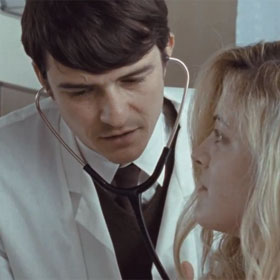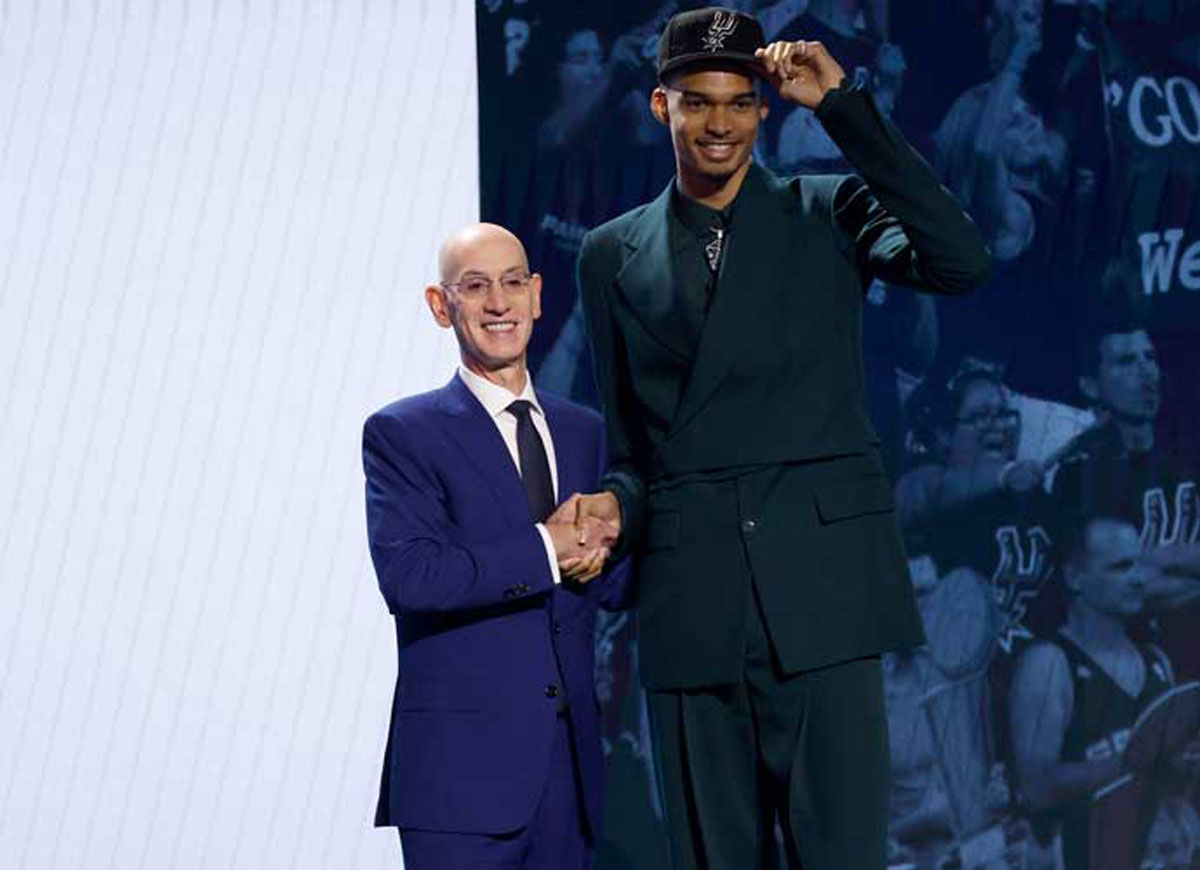'The Good Doctor' Is Immoral, But Irresistible

4/5
Written by John Enbom (Veronica Mars) and starring Orlando Bloom (Calcium Kid), The Good Doctor is a thriller that is only scary in restrospect; a thriller that is designed to make you squirm uncomfortably in your seat, rather than grip in terror. It chronicles the gradual and excruciatingly measured unwinding of a man wound rather tightly around his desperate mission for control and respect, not only in his career but in life in general. Dr. Martin Blake’s life is lackluster and void of substance in every way until he meets young Diane Nixon, a patient diagnosed with pyelonephritis (only “serious if untreated”) on whom he fixates to increasingly perilous degrees — particularly as she becomes indispensable to attaining the personal and professional success to which he so achingly aspires.
Riley Keough (The Runaways) as Diane Nixon is exquisitely Lolita-esque in far more subtle and perhaps successful ways than the original coquette, and there is an instinctive chemistry between the titular characters that we sympathize with. Until, that is, the good doctor decides — on a whim, as he is often wont to do — to sabotage her treatment so that she relapses and is forced to return to the hospital under his care. Not content with the prospect of losing her when she recovers again, Dr. Blake continues to tamper with Diane’s medicine while their unspoken relationship grows more intimate and isolating from reality and consequence. It’s a downward slope from here. His actions spiral out of control as an orderly (the forever underrated Michael Peña) gets wind of his indiscretion, and the film quickly takes a deadly turn that threatens to risk the craved respect the good doctor is finally earning among his colleagues and superiors.
Irish director Lance Daly (Kisses) colors the film in a clinical palette that winningly conveys the drab and suffocating reality in which Dr. Blake resides. But rather than portraying it as sheer darkness, Daly proposes it as a claustrophobic element. Visually, the majority of shots are crowded: scenes take place in tight spaces like Diane’s hospital room, Blake’s sparsely decorated apartment, the Nixon’s cramped middle-class home, and small bathrooms. The only expansive shot is that of the beach, where Blake envisions running into the ocean and drowning to escape; in this momentary illusion, the beach is never-ending, and the distance is almost too far to cover. This pervasive claustrophobia has the brilliant effect of wheeling the viewer into Blake’s distorted psyche, where the means are irrelevant to the ends. We enter his tunnel vision, wherein all he sees are his immediate goals and need for a recognized purpose, and the corners he must cut to get there. This fisheye lens, oblivious to the bigger picture, is consuming, and we come to understand that, while his actions may be unjustified, there’s no room to breathe or relent in this narrowly focused mental state.
Bloom, often criticized for seeming impassive, shows his chops here as Dr. Blake with subtle expressions and spectral wide-eyed stares that, while still enigmatic, manage to register the kind of microscopic emotion that strikes as most realistic and convincing, so that for a split second you feel tempted to relate to Blake's ignoble impulses. He is a natural casting choice that makes this shy, unsuspecting ticking bomb charming and easy to watch. You should hate the monster, but you’re hardwired to like him.
The 90-minute marvel offers an unclimactic and reprehensibly positive conclusion that ends the film on an unsettling note as ideally sinister as the rest. But, perhaps in contrast to Dr. Blake’s own raison d’être, the film is evidently more intent on the process of his undoing than its outcome, and seems concerned with the finale only insofar as it questions whether the journey (and collateral damage) by which Blake achieves his goal is warranted. The Good Doctor is ultimately an understated character study that offers a grim, yet eerily plausible view of humanity — which is oddly and undeniably irresistible in spite, or perhaps because, of its cynicism.
RELATED ARTICLES
Get the most-revealing celebrity conversations with the uInterview podcast!





Leave a comment